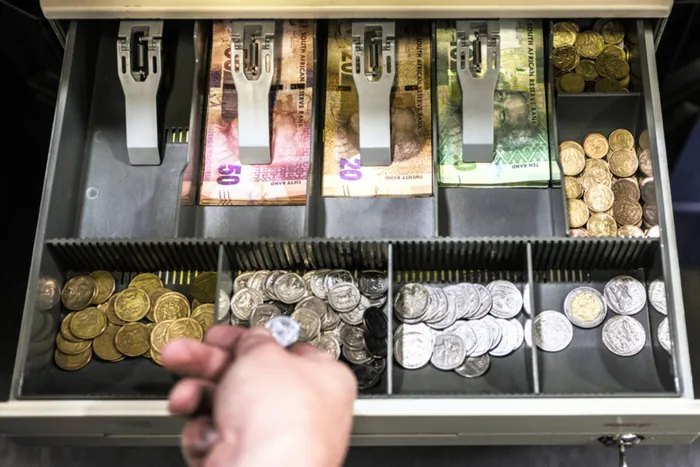State revenue for next three years lowered

File picture: Waldo Swiegers File picture: Waldo Swiegers
Johannesburg - The projected gross tax revenue was down by R35 billion over the three fiscal years ending February 2018, Finance Minister Nhlanhla Nene announced in his mini budget yesterday.
For the year ending next February, gross tax revenue had been revised down by R7.6bn from R1.081 trillion to R1.074 trillion, he added.
“This is attributable to weak performance of corporate income tax collection in the year to date due to the steep decline in commodity prices and the slowdown in economic activity,” Nene said.
“Projected revenues from corporate income tax and VAT have underperformed for the first half of the current fiscal year, and have been revised downwards,” he added.
“Personal income tax collection has been stronger, supported by above-inflation wage settlements and higher marginal tax rates.”
Company tax
During his Budget speech in February, Nene said the government was expecting to get R202bn in company tax for the year, but this forecast had been cut to R189bn.
“The under-collection of corporate income tax in the current year is mainly due to contractions in the mining and manufacturing sectors on the back of poor global demand, lower commodity prices and domestic electricity constraints,” Nene said.
“Mining and manufacturing production showed only moderate gains for the first half of 2015 and indicators suggest that underlying activity will remain weak for the remainder of the year.”
VAT
Even the previous VAT forecast of R283.8bn for the year ending February 2016 has been cut to R280.5bn.
“Final household consumption, which is the proxy tax base for VAT, indicates that households remain under pressure, weighed down by lower real disposable income, weak credit growth and higher food inflation,” Nene said.
“Revenue has nonetheless held up well since the 2008/09 recession. This signals both resilience of our tax policy framework and continued strength of tax administration,” Nene said.
Revenue
The cut in tax revenue projections stood in stark contrast to the year ended February 2015 when gross tax revenue came in R7.3bn above projections, led by strong growth in personal income tax.
Gross tax revenue has been revised downwards by R14.6bn in 2016/17 and by R12.4bn in 2017/18 compared with projections tabled in the 2015 Budget.
However, gross tax revenue was projected to continue to grow faster than nominal gross domestic product (GDP), but the margin would narrow.
Nominal growth in GDP has averaged 8.6 percent over the past five years, tax revenue has averaged 10.5 percent growth during this period.
“Over the medium term, government will explore reforms to promote an efficient and progressive tax system, taking into account recommendations of the Davis Tax Committee,” Nene said.
Since last year, the Davis Tax Committee has published reports on small business taxation, VAT, base erosion and profit shifting, estate duty and mining taxation.
“Additional taxes will be needed to fund government’s ambitious policy agenda, but will be approached with caution given weak economic conditions,” Nene said.
“Initiatives are under way to combat base erosion, profit sharing and the misuse of transfer pricing. Initiatives are under way to comprehensively deal with leakages in corporate income tax.”
Nene added that South Africa had already committed to automatic exchange of financial information for tax purposes.
He said the first exchange took place last month. More than 90 countries had committed to exchanging information in 2018, including several low-tax jurisdictions. Soon, tax evasion and aggressive tax planning would have nowhere to hide.
“No decision has been made on VAT, but it remains an option as part of a progressive fiscal system” Nene said.
“Receipts generated from VAT – the second-largest source of tax revenue – are an important part of the resources that fund progressive public expenditure programmes in education, health and social protection. The committee’s analysis of the efficacy of the VAT system, and the scenarios it presented on the likely impact of the increase in the VAT rate, have generated welcome debate.
“But an increase in the VAT rate remains one of the options available over the medium term to finance key elements of the National Development Plan,” he added.
Carbon tax
The Treasury was also looking at a carbon tax.
He said the need to take action to address the causes and consequences of climate change was increasingly important. The Treasury would soon publish a draft carbon-tax bill for public comment. It would provide further opportunity to debate on the detailed design and impact of the proposed tax.
The draft carbon tax bill will be published later this month for comment.
“This forms part of the package of measures which Minister (of Environmental Affairs Edna) Molewa will take to the UN Climate Change conference later this year. This package is intended to ensure that South Africa makes a fair contribution to global efforts to reduce greenhouse gas emissions,” Nene said.
Nene said the government was also considering the possibility of a wealth tax. “I have asked for further advice on wealth taxes,” he said.
Turning to the employment tax incentive (ETI) for young work seekers, Nene said this continued to attract broad participation.
“Total claims for the incentive have amounted to R3.9bn since the start of the programme, up to the end of July 2015. It has been claimed by over 36 000 employers, for over 250 000 workers,” Nene said.
“The ETI will be carefully addressed in due course… and continuously evaluated,” he added.
BUSINESS REPORT